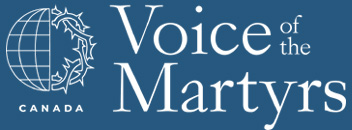
Engaging Our Culture
“Do not be conformed to this world, but be transformed by the
renewal of your mind, that by testing you may discern what
is the will of God, what is good and acceptable and perfect.”
Romans 12:2 ESV
In the book, Restoring All Things, John Stonestreet and Waren Cole Smith list four challenging questions for Christians regarding cultural engagement.
- What is good in our culture that we can promote, protect and celebrate?
- What is missing in our culture that we can creatively contribute?
- What is evil in our culture that we can stop?
- What is broken in our culture that we can restore?
Rev. Richard Wurmbrand, the founder of the Voice of the Martyrs’ international ministry, demonstrated a Christ-like response to these questions in the unlikeliest of places: a Soviet concentration camp.
Rev. Wurmbrand was arrested in 1948 by Romanian Communist police for leading the “underground church” and resisting the prevailing atheistic culture. He endured inhumane conditions among political prisoners and criminals in a brutal prison environment. Despite the hopelessness surrounding them, Rev. Wurmbrand and fellow Romanian believers clung to their faith, keeping hope alive even amid such despairing circumstances.
What was good in the concentration camp culture that Rev. Wurmbrand could promote, protect and celebrate? The Romanian pastor witnessed the beauty of the persecuted church and the fellowship of saints suffering for righteousness. Despite the severe restrictions, Rev. Wurmbrand and the other imprisoned believers remained steadfast in glorifying God by loving their neighbours; and, in doing so, they set out to change the culture within the prison. In this dismal environment, Rev. Wurmbrand discovered a profound sense of freedom in Christ that, ironically, he would seldom feel in the outside world.
What was missing in the concentration camp culture that Rev. Wurmbrand could creatively contribute? Although the brutal prison conditions resulted in many hardships, one vital aspect was notably absent: Christian worship. This spiritual void was something that Rev. Wurmbrand was determined to fill, striving to bring faith and hope back into the lives of those around him. For example, prisoners used their chains as musical instruments when they sang hymns of praise. They tithed their meagre rations and gave them to the sickest and weakest among them. Prisoners practised the Lord’s Supper with water and mouldy bread as they continued to be, across denominational lines, the church of the concentration camp.
What was the evil in the concentration camp culture that Rev. Wurmbrand could stop? Though the Communist prisons were rife with cruelty and darkness, the greatest evil Rev. Wurmbrand faced was hatred. The Communist officials’ animosity towards Christians was severe, evolving from a life devoid of Christ. In Tortured for Christ, Rev. Wurmbrand wrote, “As Communist atheists allowed no place for Jesus in their hearts, I decided I’d leave not the smallest place for Satan in mine.” He recognized that the enemies of the church could not be won through reciprocal methods of hate.
Finally, what was broken in the concentration camp culture that Rev. Wurmbrand could restore? To the imprisoned church leader, the answer was simple: it was love – the antidote to hate – that could restore broken lives and dispel the spiritual darkness of the prison environment.
When Rev. Wurmbrand was released, he admittedly had nearly forgotten much of the Bible during his imprisonment, but four thoughts kept him going: “First, there is a God. Second, Jesus Christ is my Saviour. Third, there is eternal life. Fourth, love is the best of ways.” These words are a remarkable testament from someone who endured profound suffering as a result of intense hatred and malevolence. Yet, though the pastor’s body had been beaten and broken, his heart remained unscathed.
Rev. Wurmbrand faced his cultural moment with courage, wisdom and faith. Understanding that the Communists’ philosophies and political agendas would lead his country down a path of destruction, he spent his life infusing the culture with Biblical truth.
Today, we are called to do likewise. If we are alarmed at the direction our society is heading, we must learn how to engage it proactively and winsomely with a Biblical worldview. Our cultural moment is ripe with opportunities for followers of Christ to address the spiritual void:
- We must celebrate and protect the beauty and goodness of this world. God made His creation very good and, although it is marred by sin, there is goodness we can embrace. People need to see and hear Christians enjoying God’s good creation and expressing hope that greater things are yet to come.
- There are opportunities around us to creatively address what is missing in our communities. People need to see Christians address societal needs with charity and purpose, empowering and equipping others in order to set them free from cycles of fruitlessness and dependency.
- We must identify and draw a clear line against certain evils. People need to witness Christians who are willing to make sacrifices – even to the point of risking their lives – in order to confront the immoral forces that seek to undermine Biblical truth. However, we must remember that the weapons we use are not from this world, but spiritual tools that are necessary for dismantling strongholds.
- There is much brokenness around us that only we can help to fix. People need to witness Christians serving with humility and grace to repair what has been damaged in their communities and cultures. The church should be the first place people turn to for help.
In every generation, courageous followers of Christ have confronted cultural turbulence and uncertainties with unwavering Biblical fortitude and faith. Today, let us inspire one another to engage our culture with the profound truth that only a Christian worldview can offer.
![]()
Floyd A. Brobbel
Chief Executive Officer
Voice of the Martyrs Canada Inc.

